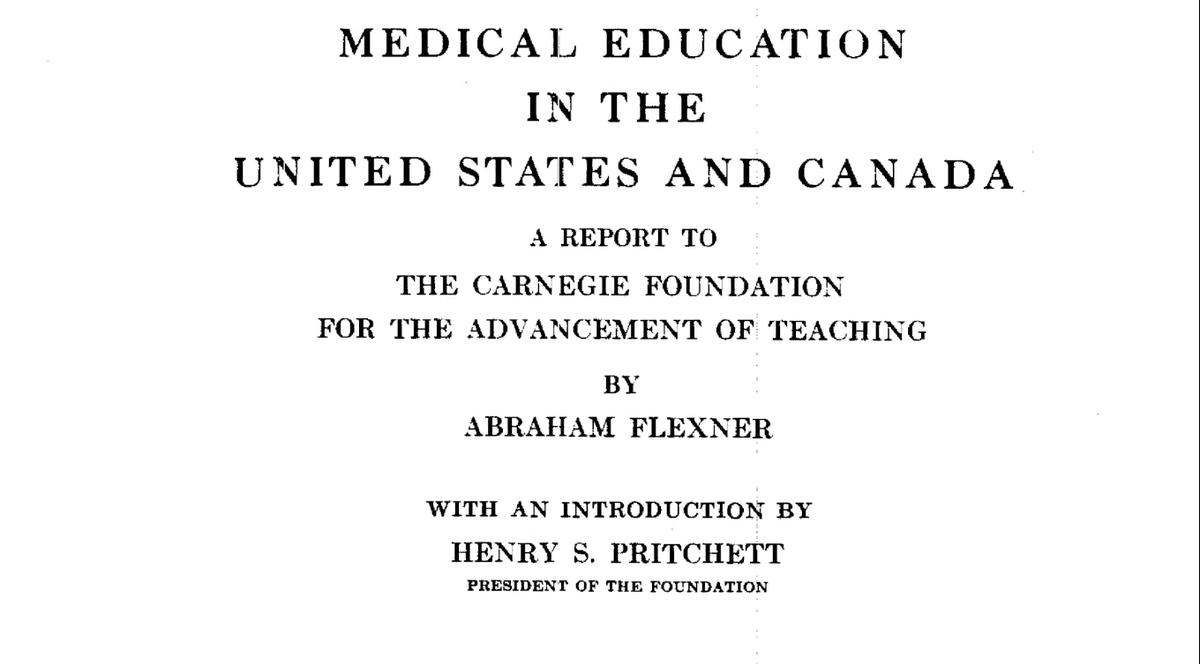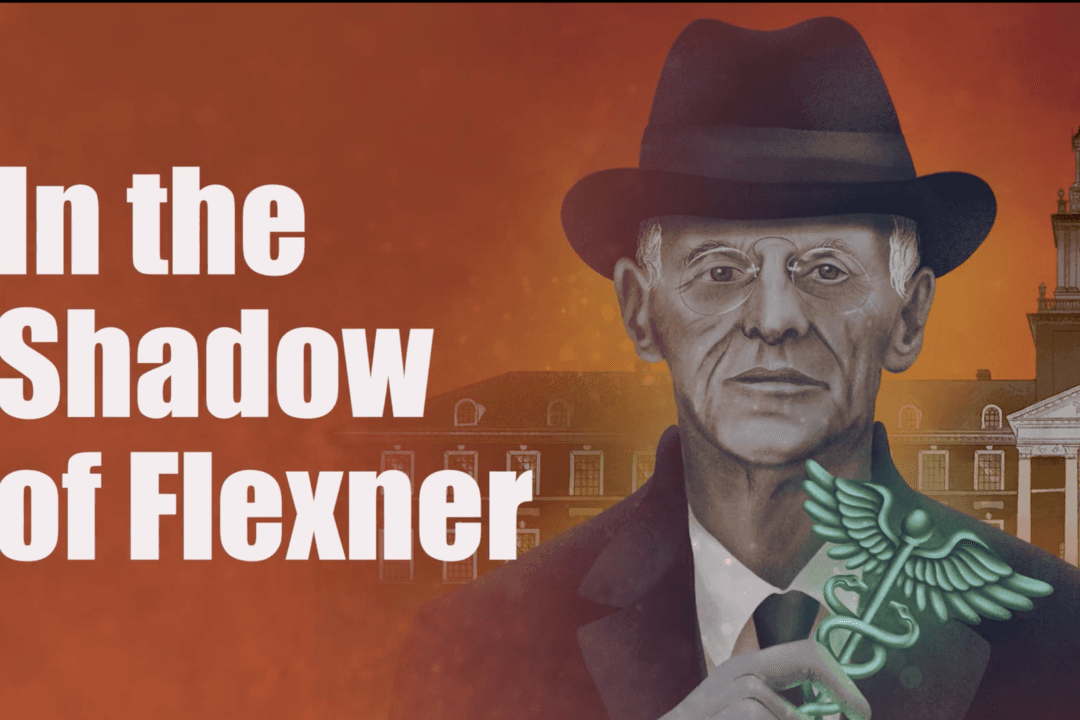“In the Shadow of Flexner,” available on EpochTV, is a groundbreaking documentary film by Justin Smith that exposes the century-old corruption that forever altered the trajectory of health care. At the heart of this riveting narrative lies the Flexner Report, a document published in 1910 with the insidious purpose of eradicating all traces of natural medicine from the educational landscape.

Video footage from the EpochTV documentary “In the Shadow of Flexner” about the road to corruption in modern medicine. Screenshot





